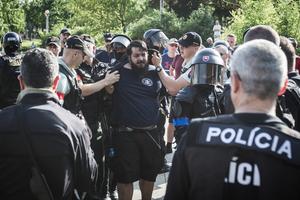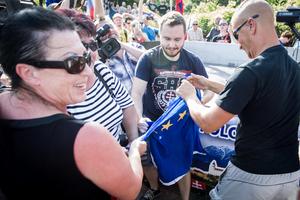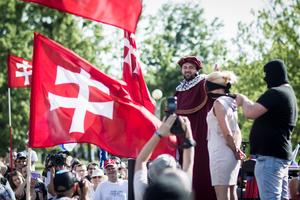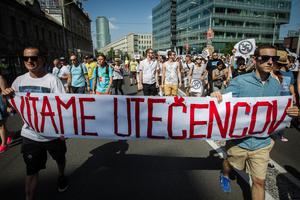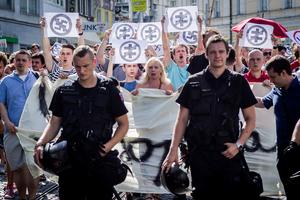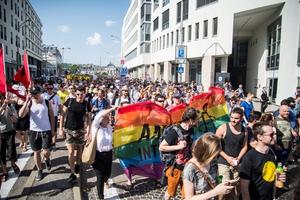The Slovak capital was the site of two demonstrations expressing opposite points of view on June 25 but unlike last year there was no violence. Though extremists chanted that the city belongs to them their numbers did not confirm it, the Sme daily wrote.
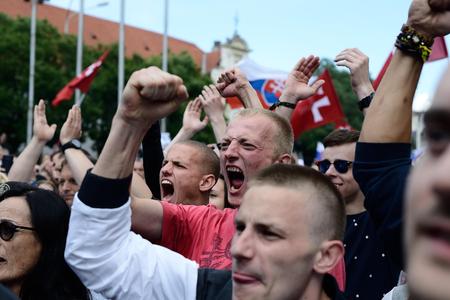
The march of the neo-Nazis, which last year took a turbulent course and disrupted an international city downhill race was faced by a demonstration of people with opposing beliefs which crossed their way only a few metres after the start. Considerably more people marched against fascism than against Brussels and migrants. According to the police estimate, the anti-EU crowd consisted of about 1,000 people at its height. The far-right extremists marched on Saturday afternoon, demanding what they called “the elimination of the dictate of Europe and Brussels”. In addition to Slovaks, groups of Czechs, Germans, Croats and Serbs took part in the march. The speeches touched on the issue of Brexit with calls for a referendum on Slovakia's exit from the EU. The event ended with an improvised trial of politicians that the protesters would like “to see hanged” with infamous extremist Marián Magát acting as Supreme Judge. The protest march started at the main railway station and ended on Freedom Square / Mierové námestie near the Government Office. The participants dispersed shortly after 17:00, the TASR newswire wrote.
Police officers isolated the march against the Brussels dictate and migrants organised by extremists. Marian Kotleba, chairman of the People’s Party-Our Slovakia (ĽSNS), did not attend, and no other high-profile party member gave a speech, either.
A counter-protest called Anti-fascist Mobilisation took place on SNP Square at the same time. It attracted a crowd of about 2,000, including former prime minister Iveta Radičová, ombudswoman Jana Dubovcová, Bratislava mayor Ivo
Nesrovnal, journalist Michal Havran and also Smer MP Ľuboš Blaha. Several opposition politicians took part, too, including the chairman of the coalition Sieť party Radoslav Procházka, Sme wrote.



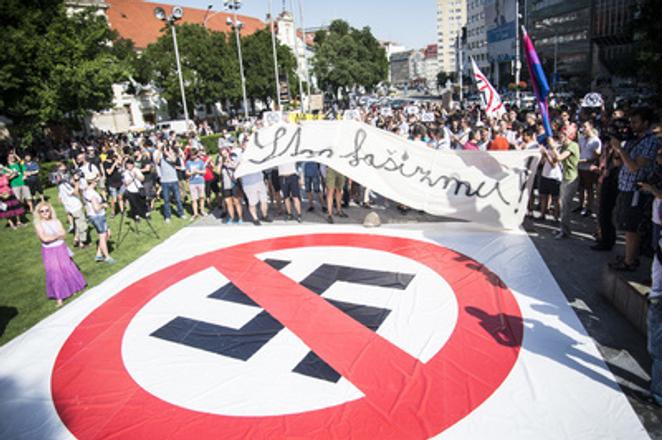 The march aaginst Fascism was more numerous in attendance. (source: TASR)
The march aaginst Fascism was more numerous in attendance. (source: TASR)
